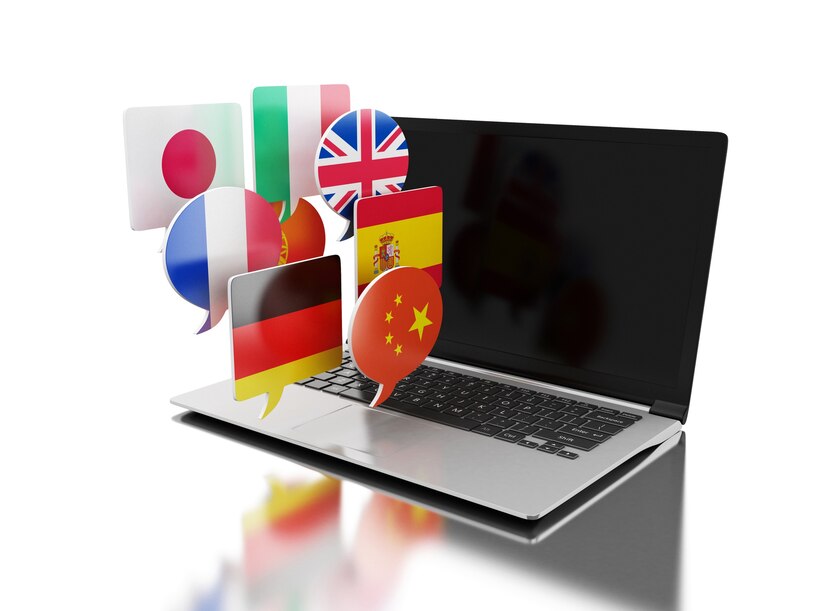We live in a world of digital media that is constantly evolving. The global market for website localization solutions is continuously growing and expected to increase at a CAGR of 7.5% from 2021 to 2026. This growth is aggravated by the increasing need for businesses to access international audiences with ease. According to a data finding by the Consumer Sense Advisory, it has been revealed that localizing the website contents with accuracy can significantly reduce the costs related to customer support and refunds. Companies that invest in Best Website Localization Services are twice more likely to see a return on their investment, that too within a year. In this post, we will delve into the unique benefits of website localization solutions aided by intriguing facts and data and decode a fresh perspective.
Enhanced User Engagement
• Locally Relevant: By providing content tailored to the linguistic needs and preferences of the local target demographic companies can significantly boost their user engagement. Studies show that websites that are localized gain a 70% increment in their user engagement as compared to sites that are not localized.
Case Study– An Indian pharmaceutical company wanted to expand its outlet in the Arab marketplace, for this it hired an efficient Arabic Website Localization company, which could efficiently translate all the company’s content material, social media content, product descriptions, and other marketing material into the Arabic language. Thus, with professional help, the company could successfully establish itself in the Arabic marketplace.
• Effortless Navigation: By offering locally relevant content, companies can effortlessly sail through their target markets. By adapting the menus, buttons, digital appearance, social media, and other elements as per the local languages and nuances; companies can enhance usability and foster customer satisfaction.
Cultural Adaptation
• Visual Elements: Customizing the visual elements to fit in the cultural contexts can result in 30% higher retention rates. The color schemes, imagery, font, layout, and other visual elements should align with the local aesthetics to be able to foster a deeper connection with the users.
• Tone of Content: Adapting the tone and the style of the text to match with the cultural norms of the target customers ensures relatability, and reliability and fosters customer loyalty. For instance, when undertaking translations in the Korean language, translators must be aware of the cultural sensitivity, honorifics, and formality levels of the Korean culture to deliver culturally relevant conversions. If you want to learn more about the intricacies of the Korean language and understand in detail the Korean document translations, you can read this interesting article on Korean Document Translation: Way Forward for Global Success.
Localization for Mobile Users
• Mobile First Approach: Most of the users, irrespective of age group are mobile friendly and feel it convenient to use their mobile phones first for looking up any website or application. Therefore making a responsive design that ensures that the localised websites are mobile friendly is important, as over 60% of the global web traffic comes from mobile devices. The localized mobile design should be able to support the contents of the website without glitches in the appearance of text or the loading of high-resolution videos or other icons.
• Localizing Mobile Apps: Localizing the mobile applications alongside the website is important to ensure consistency throughout all platforms and maintain the engagement of the user.
• Geo Location Services: Making use of Geo location services for providing personalized content delivery is important in today’s highly competitive digital world. Offering content tailored to the user location can increase conversion rates of consumers by up to 20%. This can come in the forms of displaying the region specific offers and promotions, weather updates, traffic conditions etc. to enhance the relevance and appeal to the customer. For instance, food delivery companies like Swiggy and Zomato utilize the geolocation service to offer updated content as per the customer’s location.
How to Choose the Right Localization Service for Your Company
Industry Expertise: Choosing a language service provider with experience in the same industry as yourself is important to ensure that the translators can understand the specific terminologies and regulatory requirements to deliver accurate and contextually correct conversions.
Integrating Technology: It’s important to cross-check that the service providers that your company is hiring are technologically friendly. So that it can offer advanced technological solutions like Translation Management Systems and AI-driven tools to be able to produce accurate and uniform conversions within the desired timeframes.
Cultural Competence: Localization goes beyond mere word to word translation. Therefore, hiring Professional Website Translation Services like Somya Translators who have a deft team of translators who hold specialization and expertise in the cultural knowledge about the target as well as the source language. Such competence is important to deliver projects that are cohesive, culturally correct, and relevant to the target customers.
Scalability: Having a service provider that can offer variety and flexibility in its solutions is the need of the time. The translation company should be able to adjust to the varying needs of the business and provide content that is suitable per changing needs and target markets as well as comply & coordinate with the multiple platforms the business uses simultaneously.
Corollary Words
Localizing the websites can be a complex but essential process for businesses that want to expand beyond the confines of their domestic territory. By seeking the expertise of the right localization partners like Somya Translators, businesses can ensure that their content is not only translated with accuracy but is also culturally relevant and appealing to the customer. By focusing on the user experience and embracing the emerging trends in this field, businesses can derive benefits from using data driven strategies and create more engaging and impactful localized websites.





